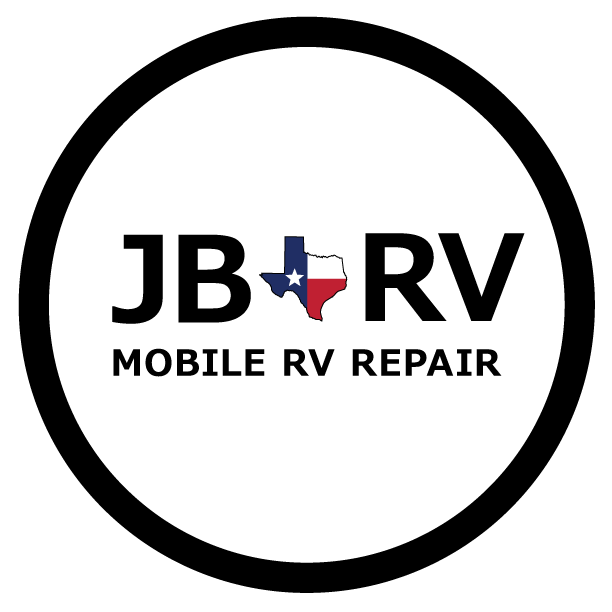For those who live in their RV full-time, your home is not just a vehicle—it’s your sanctuary, your office, your kitchen, and your retreat. Keeping everything in top working condition is essential for comfort, convenience, and safety as you travel the open road. Unlike weekend travelers, full-time RVers put their rigs through continuous use, which means regular and thorough maintenance is more important than ever.
Here are key RV maintenance tips tailored for full-time RVers to ensure your home on wheels stays in peak condition, allowing you to focus on the freedom and adventure that RV living brings.
1. Plumbing Maintenance
Your RV’s plumbing system gets daily use, which makes it particularly susceptible to wear and tear. Proper care is crucial to prevent leaks, clogs, and costly repairs.
Inspect for Leaks Regularly
Check under sinks, around toilets, and near water lines for any signs of moisture or drips. Catching a small leak early can prevent major water damage down the road.
Maintain Holding Tanks
Empty and flush your black and gray water tanks regularly to prevent buildup and unpleasant odors. Use RV-specific toilet paper and tank treatments to break down waste effectively.
Check the Water Pump
Ensure your water pump is working properly by listening for unusual noises or fluctuations in water pressure. Clean the pump’s filter regularly to keep water flowing efficiently.
Winterize When Needed
If you’ll be traveling or parked in colder climates, ensure your water system is winterized to prevent pipes from freezing and bursting.
Pro Tip: Invest in a water pressure regulator to prevent damage to your plumbing system caused by inconsistent or high water pressure at campgrounds.
2. Appliance Care
As a full-time RVer, your appliances—like the refrigerator, stove, furnace, and air conditioner—are used constantly. When considering your RV maintenance, be sure to include these items. Regular maintenance to your appliances ensures they run efficiently and don’t leave you stranded without essential functions.
Refrigerator
Check that your RV fridge is level to ensure proper operation. Clean the vents and coils regularly to improve efficiency, and test the seals around the door to avoid cold air escaping.
Air Conditioner
Clean or replace air filters monthly and inspect the AC vents for dust buildup. Check the roof-mounted unit for debris or signs of damage. A clean, well-maintained AC keeps your RV cool and your energy bills low.
Furnace
Before colder weather, test your furnace to ensure it works properly. Clean vents and ducts to avoid blockages, and check for propane leaks or faulty igniters.
Water Heater
Drain and flush your water heater regularly to remove sediment buildup that can affect performance. Test the anode rod and replace it if corroded.
3. Electrical System Maintenance
The electrical system in your RV powers everything from lights to appliances, so keeping it in good working order is essential. Electrical issues can be inconvenient at best and dangerous at worst. Don’t skip this important element of your RV maintenance routine.
Refrigerator
Check that your RV fridge is level to ensure proper operation. Clean the vents and coils regularly to improve efficiency, and test the seals around the door to avoid cold air escaping.
Air Conditioner
Clean or replace air filters monthly and inspect the AC vents for dust buildup. Check the roof-mounted unit for debris or signs of damage. A clean, well-maintained AC keeps your RV cool and your energy bills low.
Furnace
Before colder weather, test your furnace to ensure it works properly. Clean vents and ducts to avoid blockages, and check for propane leaks or faulty igniters.
Water Heater
Drain and flush your water heater regularly to remove sediment buildup that can affect performance. Test the anode rod and replace it if corroded.
Pro Tip: Invest in a multimeter to test battery voltage, shore power connections, and electrical components. This simple tool can help you troubleshoot small issues before they become big problems.
Inspect Roof Seals and Seams
Check the roof seals, vents, and seams every few months for cracks, peeling, or gaps. Reapply RV-safe sealant where needed to prevent water intrusion.
Clean and Condition the Roof
Regularly clean your RV roof to remove dirt, debris, and mold. For rubber roofs, apply a protective conditioner to extend its life.
Check Windows and Doors
Inspect window and door seals for signs of wear. Replace cracked seals or weatherstripping to prevent drafts and leaks.
Inspect for Exterior Damage
Look for cracks, dents, or gel coat damage to the body of your RV. Addressing minor damage early prevents it from worsening over time.
Pro Tip: Schedule a professional roof inspection annually to catch hidden issues, especially if you’ve experienced heavy rain, hail, or tree branch impacts.
5. HVAC System Maintenance
Full-time RVers rely heavily on their heating, ventilation, and air conditioning systems. These systems need regular care to perform efficiently, no matter the weather.
Change Air Filters
Dirty filters reduce airflow and force your HVAC system to work harder, leading to inefficiency and potential breakdowns. Clean or replace filters monthly.
Inspect Ductwork and Vents
Check for blockages, dust buildup, or leaks in the ducts and vents. Proper airflow ensures consistent heating and cooling.
Service the Furnace and A/C
Before extreme temperatures hit, test your furnace and air conditioning units. Clean the burners, blower motor, and coils to ensure everything is functioning efficiently.
Pro Tip: Use vent covers to protect roof-mounted HVAC systems from debris and weather damage while allowing for proper airflow.
6. Holding Tanks and Waste Systems
A poorly maintained waste system can turn RV life into a nightmare. Regular care keeps holding tanks clean and operating smoothly.
Dump Tanks Regularly
Don’t let black or gray tanks sit full for too long. Flush the tanks completely, and use RV tank treatments to break down waste and control odors.
Inspect Tank Valves and Hoses
Check for leaks, cracks, or worn-out valves in your waste system. Replace damaged parts immediately to avoid messy surprises.
Keep the Sensors Clean
Sensors in holding tanks can get dirty and show inaccurate readings. Use tank cleaners or a rinse wand to clear buildup and ensure accuracy.
Pro Tip: Always use RV-safe chemicals and biodegradable toilet paper to prevent clogs and protect the plumbing system.
Stay Ahead with Regular Maintenance
For full-time RVers, RV maintenance is not just about convenience—it’s about protecting your home and ensuring every trip is smooth, safe, and enjoyable. By staying proactive with plumbing, appliances, electrical systems, and exterior care, you can avoid costly repairs and keep your RV in top condition for years to come.
Need professional help with RV maintenance?
At JBRV Mobile RV Repair, we specialize in keeping full-time RVers on the road with expert inspections, repairs, and services. Whether it’s a plumbing issue, HVAC maintenance, or electrical troubleshooting, our team comes to you to get the job done.
Schedule your RV maintenance service today and keep your home on wheels running smoothly!

